Abstract
Outbreaks of foot-and-mouth disease persist in dairy cattle herds in Saudi Arabia despite revaccination at intervals of 4-6 months. Vaccine trials provide data on antibody responses following vaccination. Using this information we developed a mathematical model of the decay of protective antibodies with which we estimated the fraction of susceptible animals at a given time after vaccination. The model describes the data well, suggesting over 95% take with an antibody half-life of 43 days. Farm records provided data on the time course of five outbreaks. We applied a 'SLIR' epidemiological model to these data, fitting a single parameter representing disease transmission rate. The analysis provides estimates of the basic reproduction number R(0), which may exceed 70 in some cases. We conclude that the critical intervaccination interval which would provide herd immunity against FMDV is unrealistically short, especially for heterologous challenge. We suggest that it may not be possible to prevent foot-and-mouth disease outbreaks on these farms using currently available vaccines.
Full text
PDF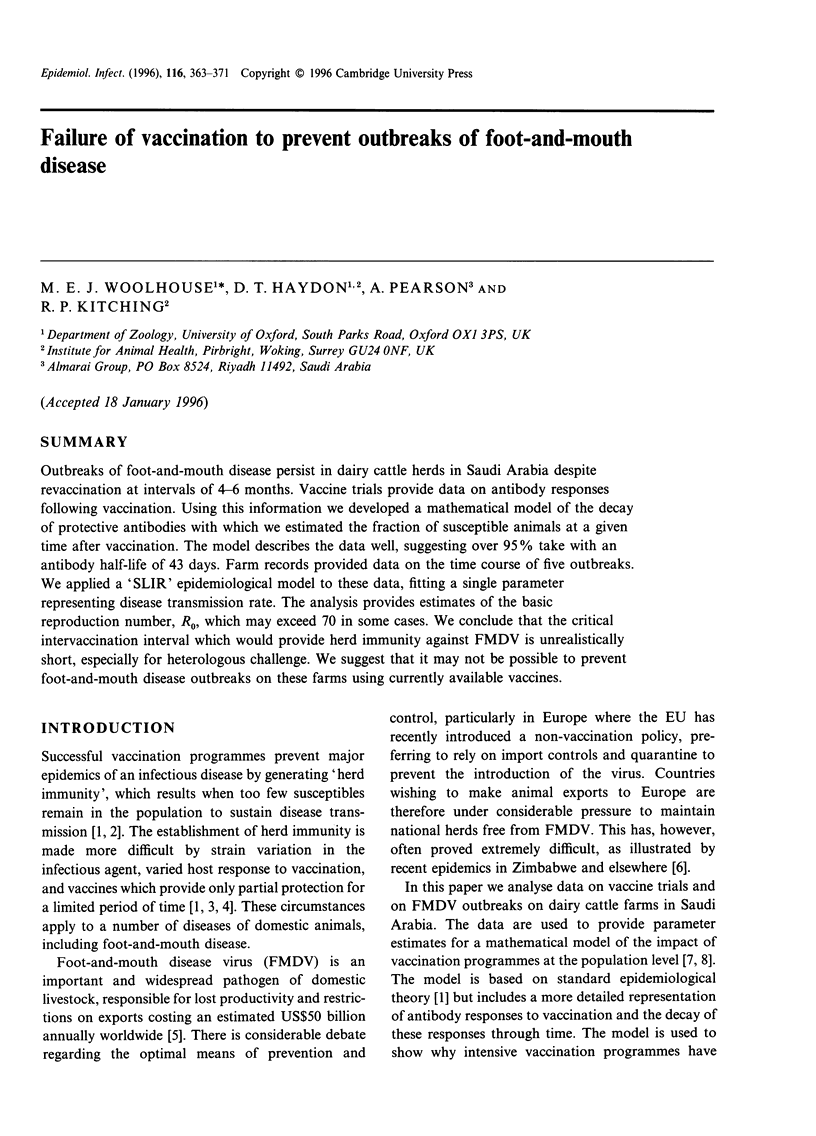
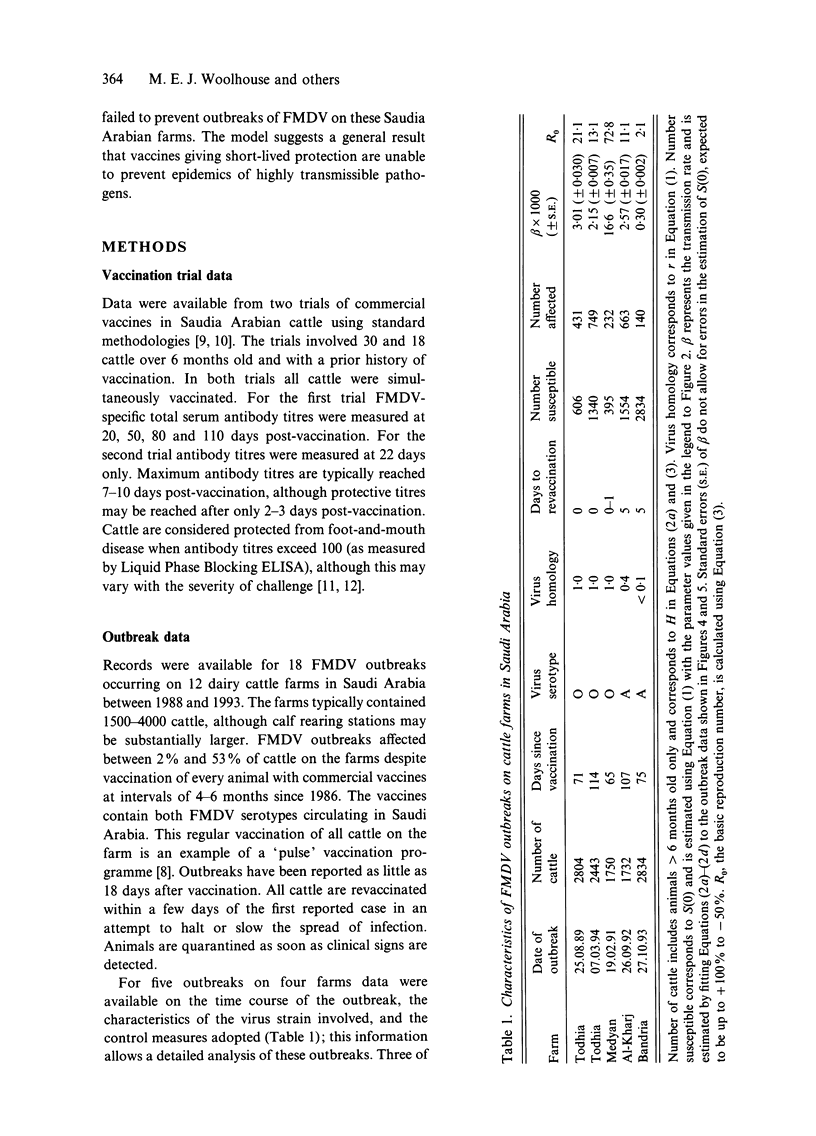
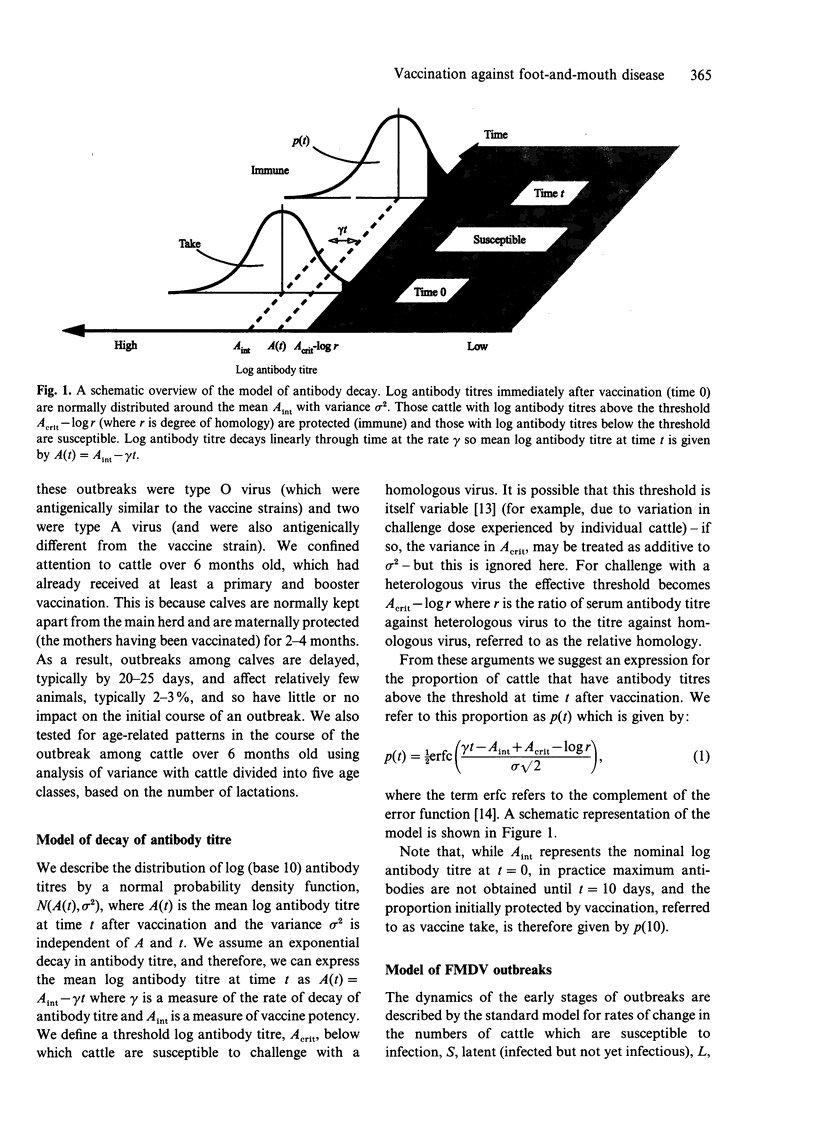
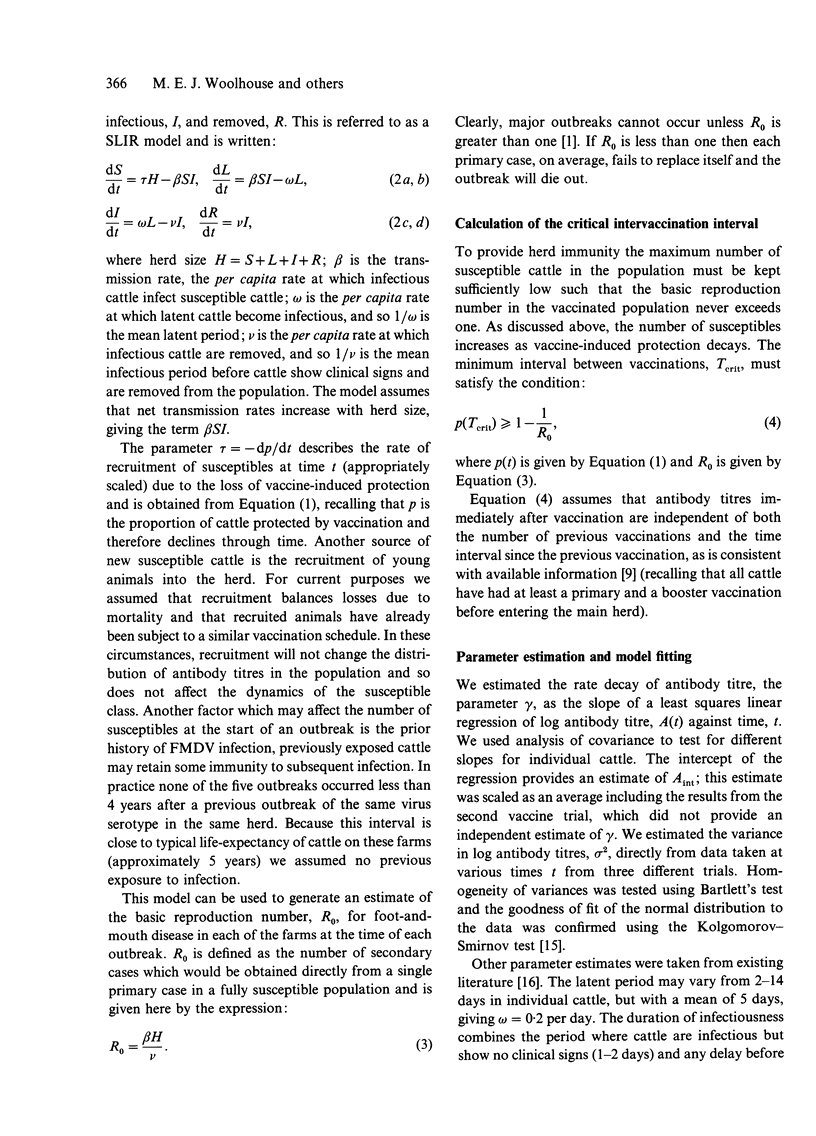
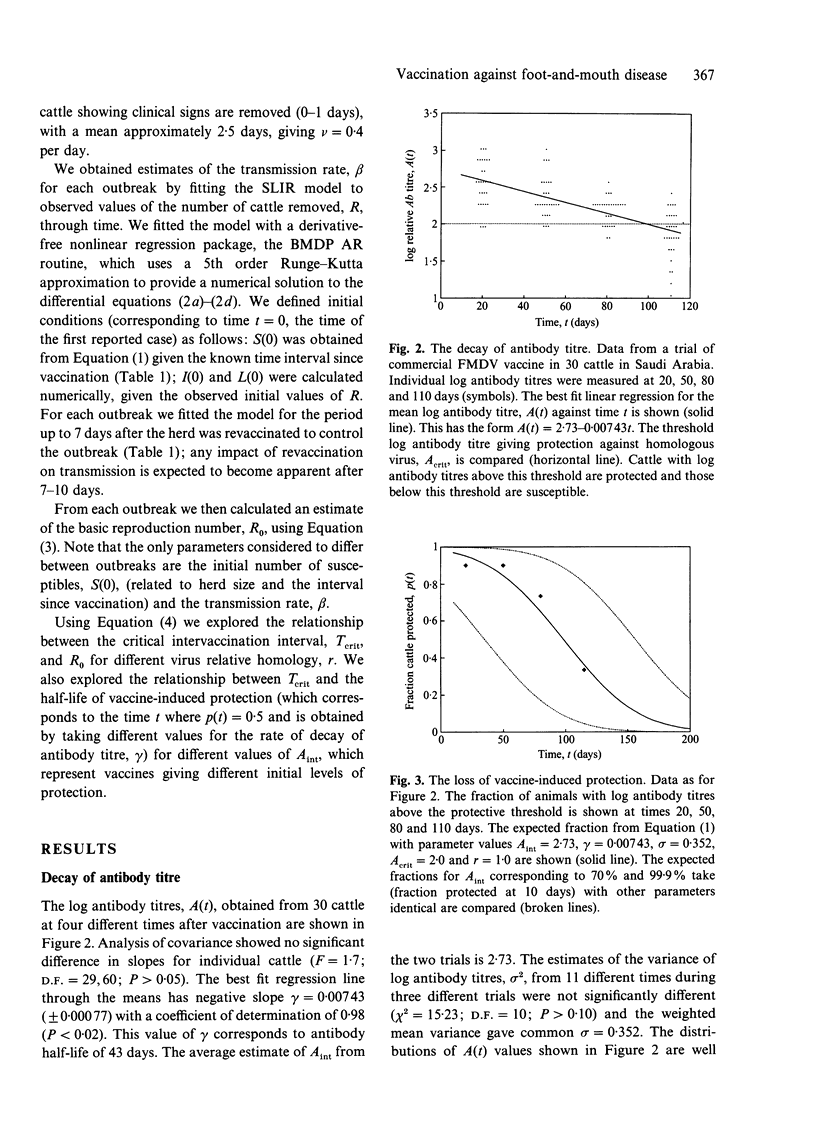
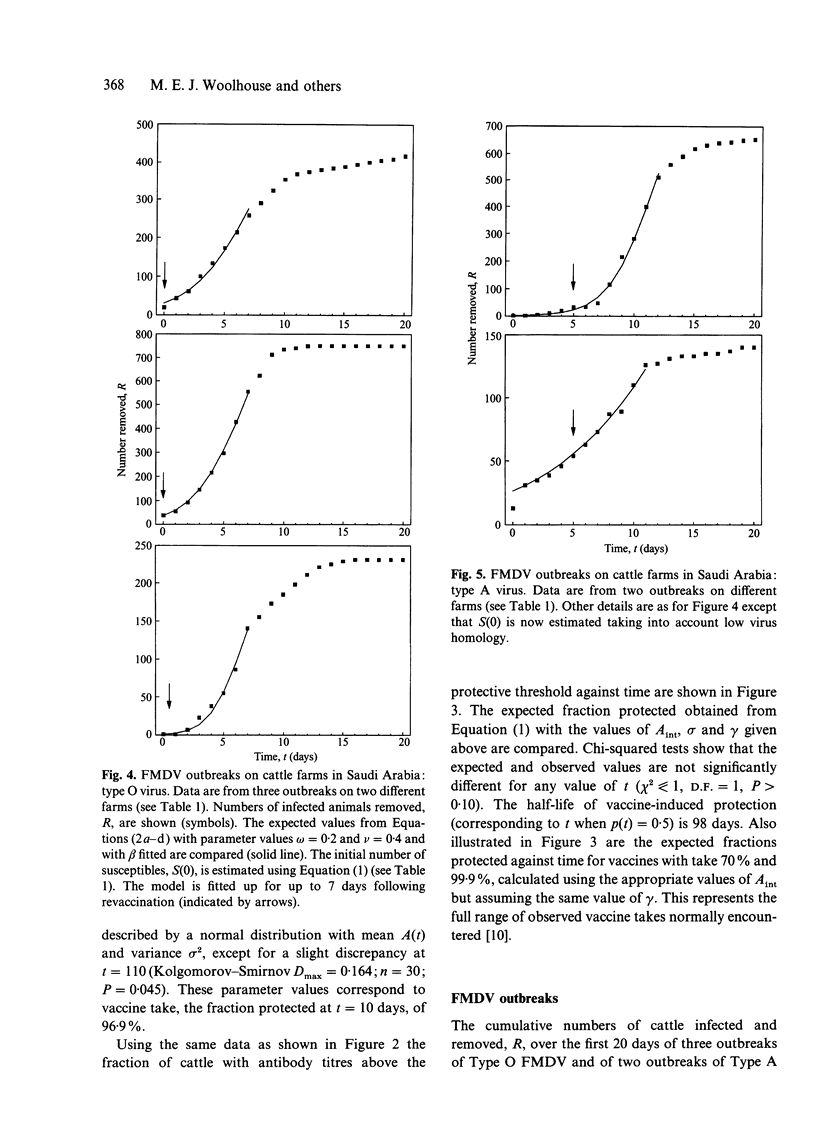
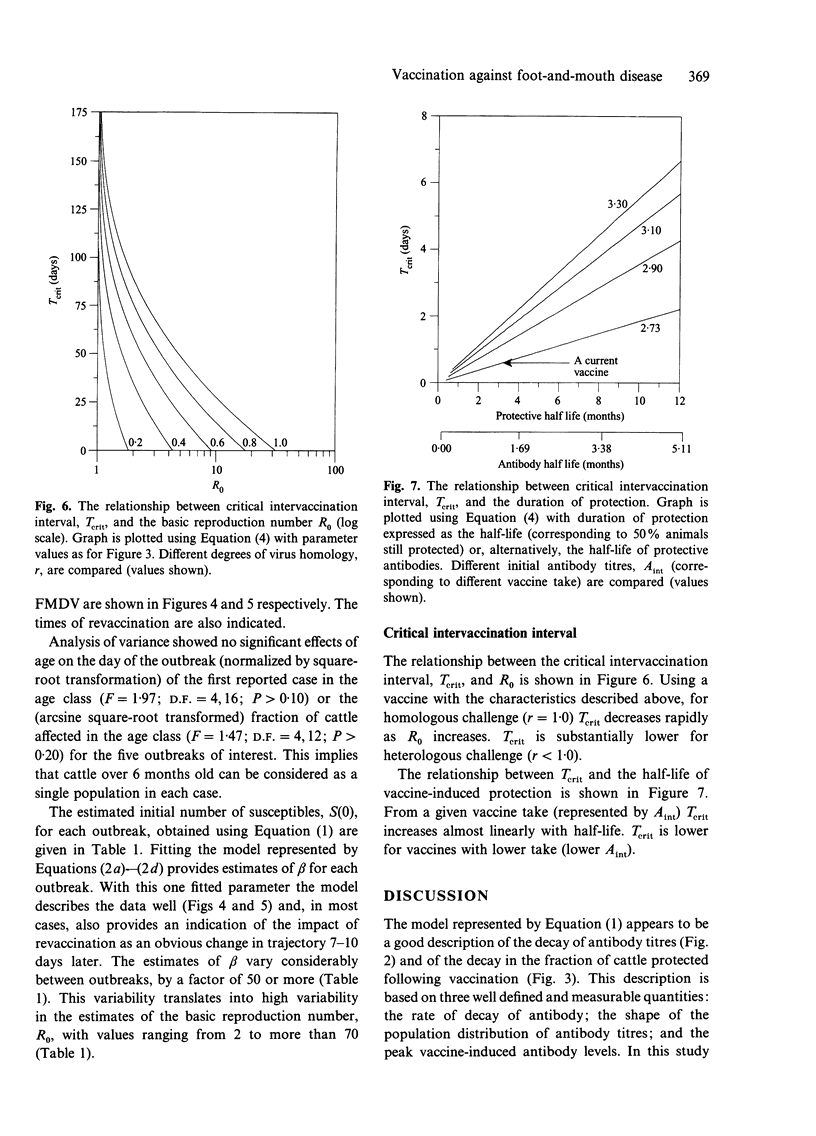
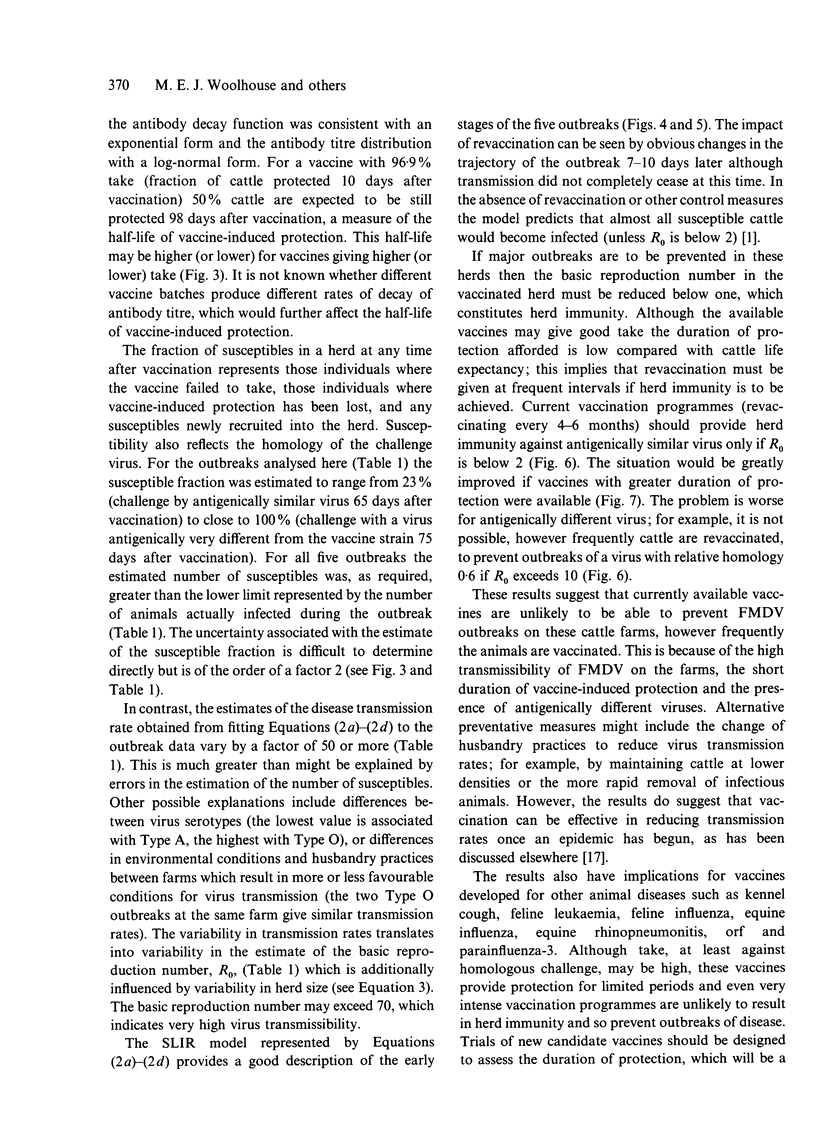
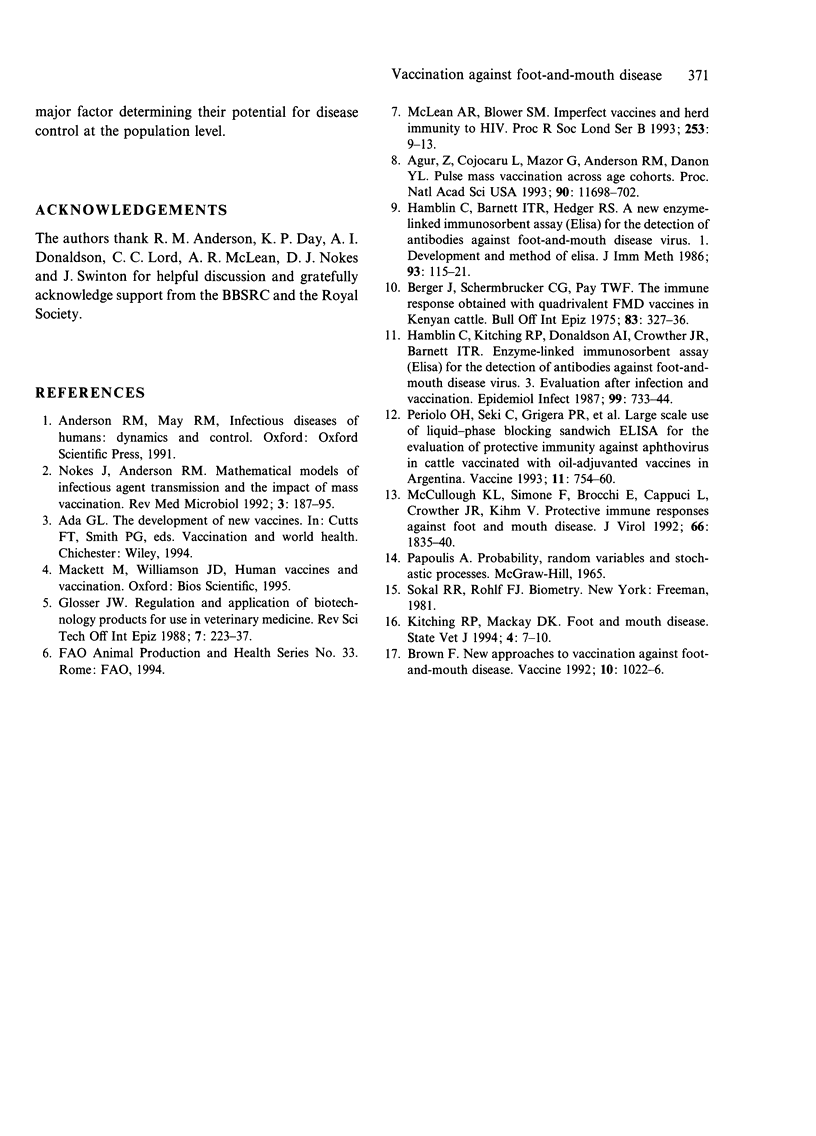
Selected References
These references are in PubMed. This may not be the complete list of references from this article.
- Agur Z., Cojocaru L., Mazor G., Anderson R. M., Danon Y. L. Pulse mass measles vaccination across age cohorts. Proc Natl Acad Sci U S A. 1993 Dec 15;90(24):11698–11702. doi: 10.1073/pnas.90.24.11698. [DOI] [PMC free article] [PubMed] [Google Scholar]
- Brown F. New approaches to vaccination against foot-and-mouth disease. Vaccine. 1992;10(14):1022–1026. doi: 10.1016/0264-410x(92)90111-v. [DOI] [PubMed] [Google Scholar]
- Hamblin C., Barnett I. T., Hedger R. S. A new enzyme-linked immunosorbent assay (ELISA) for the detection of antibodies against foot-and-mouth disease virus. I. Development and method of ELISA. J Immunol Methods. 1986 Oct 23;93(1):115–121. doi: 10.1016/0022-1759(86)90441-2. [DOI] [PubMed] [Google Scholar]
- Hamblin C., Kitching R. P., Donaldson A. I., Crowther J. R., Barnett I. T. Enzyme-linked immunosorbent assay (ELISA) for the detection of antibodies against foot-and-mouth disease virus. III. Evaluation of antibodies after infection and vaccination. Epidemiol Infect. 1987 Dec;99(3):733–744. doi: 10.1017/s0950268800066590. [DOI] [PMC free article] [PubMed] [Google Scholar]
- McCullough K. C., De Simone F., Brocchi E., Capucci L., Crowther J. R., Kihm U. Protective immune response against foot-and-mouth disease. J Virol. 1992 Apr;66(4):1835–1840. doi: 10.1128/jvi.66.4.1835-1840.1992. [DOI] [PMC free article] [PubMed] [Google Scholar]
- McLean A. R., Blower S. M. Imperfect vaccines and herd immunity to HIV. Proc Biol Sci. 1993 Jul 22;253(1336):9–13. doi: 10.1098/rspb.1993.0075. [DOI] [PubMed] [Google Scholar]
- Periolo O. H., Seki C., Grigera P. R., Robiolo B., Fernández G., Maradei E., D'Aloia R., La Torre J. L. Large-scale use of liquid-phase blocking sandwich ELISA for the evaluation of protective immunity against aphthovirus in cattle vaccinated with oil-adjuvanted vaccines in Argentina. Vaccine. 1993;11(7):754–760. doi: 10.1016/0264-410x(93)90261-u. [DOI] [PubMed] [Google Scholar]


